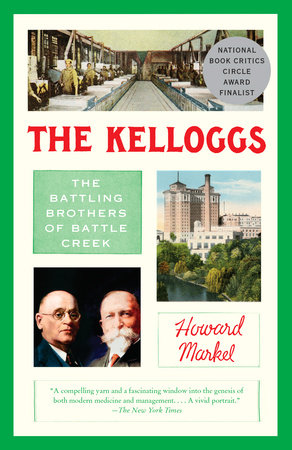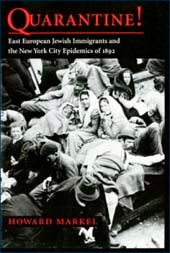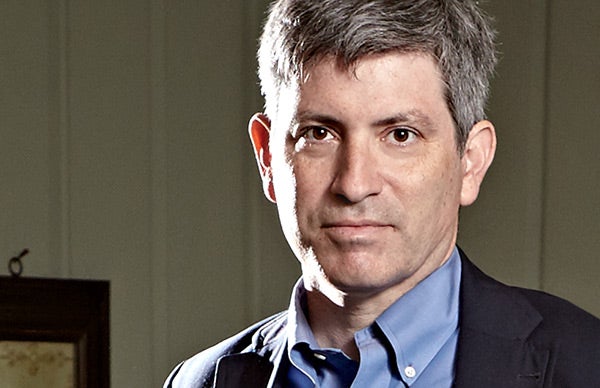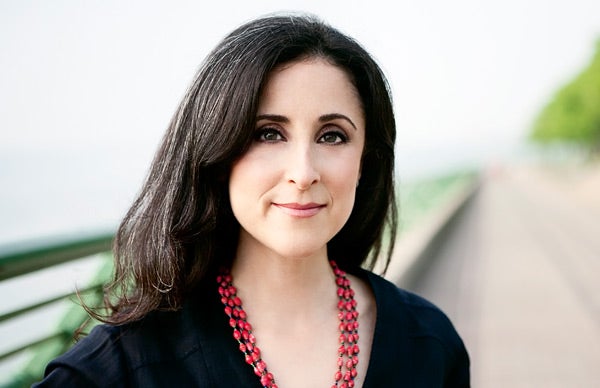Howard Markel, M.D.
Medical historian, M.D., journalist, and award-winning author

-
About Howard Markel
Howard Markel, M.D., Ph.D., is the George E. Wantz Distinguished Professor of the History of Medicine and director of the Center for the History of Medicine at the University of Michigan. He is also a professor of psychiatry, public health, history, and pediatrics. An acclaimed social and cultural historian of medicine, Dr. Markel brings a fascinating historical perspective to health topics faced by society.
Dr. Markel is also the author, coauthor, or coeditor of eleven books, including the award-winning Quarantine!: East European Jewish Immigrants and the New York City Epidemics of 1892 and When Germs Travel: Six Major Epidemics That Have Invaded America and the Fears They Have Unleashed. In When Germs Travel, he tells the distinctive stories of six epidemics–tuberculosis, bubonic plague, trachoma, typhus, cholera, and AIDS–to explain why our chief defense against diseases never worked in a world of bustling international travel and porous borders.
During COVID-19, drawing on his experience as a physician and his extensive knowledge on the efforts to stop the spread of the 1918 flu pandemic and the 2009 H1N1 flu epidemic, he worked with the U.S. Centers for Disease Control and Prevention in flattening the curve and slowing the spread of coronavirus. His groundbreaking research, including the benefits of social distancing, had a profound impact on the world’s public health.
Howard Markel is also the author of An Anatomy of Addiction: Sigmund Freud, William Halsted, and the Miracle Drug Cocaine. An Anatomy of Addiction, a New York Times bestseller, describes the long history of the then-heralded wonder drug, how its use has grown in recent decades, and what we must all do to stop the current epidemic in its tracks. His most recent work The Kelloggs: The Battling Brothers of Battle Creek is a fascinating chronicle of John and Will Kellogg, who built an empire and changed the course of American medicine, nutrition, and diet.
Dr. Howard Markel has appeared on numerous national radio and television news broadcasts and in film documentaries about the history of medicine and public health for National Public Radio (All Things Considered, Morning Edition, Talk of the Nation, Science Friday, Here and Now, Tell Me More, andMarketplace), ABC’s Good Morning America, PBS (Nova, Frontline, NewsHour), PRI’s The World, CNN, MSNBC, Fox, and the History Channel. In 2008, he was elected a member of the Institute of Medicine of the National Academy of Sciences.
Contact us about booking Howard Markel, M.D. for a speaking engagement.
-
Speaking Topics
When Germs Travel: Contagious Crises Across History
Our struggle against deadly microbes is endless. Diseases that have plagued human beings since ancient times still exist, and nearly every year new infectious killers sprout up to threaten our well-being. Surveying AIDS and tuberculosis, influenza, SARS, and Covid-19, Dr. Markel provides an eye-opening look at the fragility of our public health system and the very human stories of those most affected by contagious crises.
The Opioid Epidemic and An Anatomy of Addiction
The opioid epidemic is a human-made crisis, generated by an unholy alliance of major pharmaceutical companies, doctors too eager to prescribe potent painkillers, and patients clamoring for them to the point of addiction and even annihilation. Overdoses of narcotics, opiates and opioid drugs are the number one cause of death for Americans under 50: in 2017 alone, these drugs killed more people than gun injuries or automobile accidents. In this lecture, Dr. Markel applies his experience as a pediatrician, an addiction physician, and the author of the bestselling book An Anatomy of Addiction to describe the long history of this catastrophe, how it has grown in recent decades, and what we must all do to stop this epidemic in its tracks.
The Kelloggs
In this lecture, Dr. Howard Markel tells the sweeping saga of the two extraordinary Kellogg brothers, whose lifelong competition and enmity toward one another changed America's notion of health and wellness from the mid-nineteenth to the mid-twentieth centuries, and who helped change the course of American medicine, nutrition, wellness, and diet. As Markel chronicles the Kelloggs' fascinating ascent into the pantheon of American industrialists, he also shares the vast changes in American social mores that took shape in diet, health, medicine, philanthropy, and food manufacturing during seven decades--changing the lives of millions and helping to shape our industrial age.
Illness Narratives: Inspiring Patients Who Changed My Life and Will Change Yours
Drawing on more than thirty years of medical practice—and on many of the essays on patient care he has written for The New York Times—Dr. Markel discusses the patients who have taught him most about humanity, humility, and the compassionate aspects of being a doctor. He recounts stories that inspire hope as we all struggle with our personal health issues and, more broadly, the rapidly changing U.S. health care system.
The First Draft of History: Medical Journalism in the Twenty-first Century
Every day, newspapers, television and radio broadcasts, and the Internet herald the latest advances in medicine. But how are these stories selected, and what is their impact on the American public? Using his decades-long experience as a medical journalist who has broken stories for The New York Times, The Wall Street Journal, The Washington Post, and NPR, Dr. Markel explains the good and bad results of “hot” medical news.
Categories: Healthcare + Medicine Speakers -
Praise for Howard Markel
Praise for The Kelloggs
A compelling yarn and a fascinating window into the genesis of both modern medicine and management . . . a vivid portrait of the brothers and their era.
— Jonathan A. Knee, New York Times “DealBook” columnA brilliant (and big!) new biography of the two brothers, The Kelloggs. . .There’s no better midsummer’s read, in my mind, than a biography or narrative big enough to act as a doorstop. The Kelloggs offers even more. I haven’t even been able to scratch the surface of it all here. One could devote an entire review to the large swaths of the book on Kellogg’s, the company, alone—which I may have done had I not written so many words before that tale begins, on page 236! The Kelloggs is a brilliant biography, a medical and industrial (even natural and environmental) history, a great lesson in entrepreneurship, leadership, and management, and a great family drama all rolled into one.
— Editor’s Choice, Dylan Schleicher, 800 CEOMarkel does an extraordinary job covering the many complex dimensions of this story . . . a rich and satisfying account of the lives, work and enmity of two warring brothers and of a pivotal epoch in American history.
— Katherine A. Powers , NewsdayInsightful and entertaining . . . A revealing window into America as it evolved from the Civil War to World War II
— The National Book ReviewMarkel’s new book vividly recounts the contentious story of two men behind the early 20th century’s revolution in ready-to-eat foods. … a mix of a Horatio Alger success story and a cautionary fable about blind egos sabotaging their own best efforts. . . [the book is] lively throughout as it delivers a tale both personal in its intensity and grand in its scope.
— Michael Upchurch, Chicago TribuneThis incredible story by itself would be sufficient for a book. Markel, however, goes much further . . .an engrossing adventure about the rise of Midwest America from the pioneering days of the Kellogg family to World War II with all of its failures and successes. Medicine, breakfast foods, and the Seventh Day Adventist Church are part of the story.
— Robert S. Davis, New York Journal of BooksHoward Markel’s riveting, deeply researched new book covers vast territory: the saga of the squabbling Kellogg brothers (“magnificent showmen, resolute empire builders, and unwavering visionaries”), their mass-branding of breakfast cereals, their concept of “wellness”, and their enormous influence on the diet of millions of Americans. This book arrives at a pivotal moment in our own history when mass-marketing, showmanship, and the media deserve particularly deep study. Markel’s incandescent scholarship and his incisive analysis shine through this book. The Kelloggs can certainly be read as a biography of two visionaries (and their extended families), but it also deserves to be read as a case study by generations of future readers.
— Siddhartha Mukherjee, Pulitzer Prize winning author of The Emperor of All Maladies: A Biography of CancerIn this illuminating account, medical historian Markel chronicles the long-running animosity between Michigan brothers John and Will Kellogg, “the Cain and Abel of America’s heartland” . . . Readers will never look at corn flakes or Post Toasties (created by C.W. Post, who stole the Kelloggs’ recipes) in quite the same way again.
— BookPageA turbulent tale . . . Markel’s amazing amalgamation of biography and history, covering the pursuit of health in late-nineteenth- and early twentieth-century America, industrialism, and the invention of cold cereals is adorned with fetching photographs and illustrations. Sibling rivalry has rarely been so dastardly and delectable.
— Tony Miksanek, Booklist (starred review)The story of the Kellogg Brothers is the story of innovation, of determination, and the creation of a giant industry as American business came of age just prior to the Second World War. It is a tale of grit, controversy, faith and the emergence of the ‘wellness’ movement. In the hands of Markel, a trained historian, physician, seasoned writer and chronicler of America, this tale comes alive. A fabulous read.
— Abraham Verghese, author of Cutting for StoneDelightful . . . Markel refreshingly resists the temptation—not resisted by films and novels—to deliver caricatures . . . A superb warts-and-all account of two men whose lives help illuminate the rise of health promotion and the modern food industry.
— Kirkus Reviews (starred review)A rollicking tale of family intrigue and inventiveness. This full exegesis of the Kelloggs’ unseemly personalities makes for a riveting read.
— Andrew Solomon, author of Far and AwayHoward Markel’s The Kelloggs recounts the incredible exploits of the Kellogg Brothers—John and Will—who turned nineteenth-century medicine upside down for the better. Markel does a marvelous job recounting the birth of the Kellogg cereal empire and the Battle Creek sanitarium. An amazing American story!
— Douglas Brinkley, author of Rightful HeritagePraise for An Anatomy of Addiction
With both wit and style, Markel has produced a scrupulously researched, meticulously detailed account of the history of cocaine, as well as the drug dependences of Halsted and Freud.
— Hopkins Medicine MagazineThe best medical histories are the ones that cause the imagination to run riot. A fast-rising master of satisfying this human quest for mind-altering willies is the Michigan medical historian Howard Markel.
— The Winnipeg Free PressA fascinating revelation of conditions prevailing in hospitals and medical circles in the late 19th and 20th centuries.
— New York Journal of BooksColorful study . . . brisk . . . an engaging well-researched historical homily about fame and foible.
— BloombergWell-researched. . . . A thoughtful picture of late 19th century medicine.
— The San Francisco Chronicle Book ReviewA richly engaging book . . . highly recommended.
— Wired[A] witty, wide-ranging book.
— Boston GlobeInspired, entertaining and informative . . . [Markel] tells this fascinating tale in an insightful contemporary book that is both intellectually engaging and exceptionally well written.
— Journal of the American Medical AssociationMarkel brilliantly describes the paradox of [Halsted’s and Freud’s] lives.
— NatureDr. Markel braids these men’s stories intricately, intelligently and often elegantly.
— The New York TimesIt’s a fascinating book about fascinating men, but even more interesting for those of us who want a glimpse of modern medicine when it was just starting to develop.
— The New RepublicFrom the dramatic opening scene on the first page to the epilogue, An Anatomy of Addiction is a hugely satisfying read. Howard Markel is physician, historian and wonderful storyteller, and since his tale involves two of the most compelling characters in medicine, I could not put it down—addictive is the word for this terrific book.
— Abraham Verghese, author of Cutting for StoneCompelling and compassionate . . . a book that profoundly demonstrates the complexity and breadth of their genius . . . a richly woven analysis complete with anecdotes, historical research, photos and present-day knowledge about the character of the addictive personality.
— BooklistProvocative . . . persuasive and engrossing.
— Salon.comA splendid history . . . [Markel is a] fluent, incisive and often subtly funny writer.
— The Baltimore SunA rich, revelatory new book. . . . [Markel is] a careful writer and a tireless researcher, and as a trained physician himself, Markel is able to pronounce on medical matters with firmness and authority.
— TIMEMarkel creates rich portraits of men who shared, as he writes of Freud, a ‘particular constellation of bold risk taking, emotional scar tissue, and psychic turmoil.’
— The New YorkerTerrific. . . . This rich, engrossing book reminds us of the strangeness of even heroic destinies.
— Los Angeles TimesA tour de force of scientific and social history, one that helps illuminate a unique period in the long story of medical discovery. . . . Absorbing and thoroughly documented . . . a vivid narrative of two of the most remarkable of the many contributors to our understanding of human biology and function.
— The New York Times Book ReviewIncisive. . . . An irresistible cautionary tale.
— The Wall Street JournalPraise for When Germs Travel
Markel, a medical historian at the University of Michigan, vividly describes six infectious outbreaks in the United States—tuberculosis, bubonic plague, trachoma, typhus, cholera and AIDS—that became associated with immigrants and triggered quarantines and deportations.
— The New York Times Book ReviewInformative and important. . . . Thoroughly researched, well argued, and replete with insightful, nuanced interpretations.
— St. Louis Post-DispatchCompelling. . . . Markel’s accounts are powerful and his documentation extensive. . . . Everyone who considers the United States a nation of civilized people should read this book.
— Wilson QuarterlyMarkel is . . . an astute observer of the fierce historical battles between people and germs, and he reminds us that the war goes on and on. . . . Well-written and approachable.
— The Ann Arbor NewsMarkel writes beautifully, and his perspective as both a trained historian and a dedicated physician make him a writer like no other.
— Abraham VergheseA critically important book for this historical moment. . . . A clarion call for the public (and the government) to recognize both the importance and the precariousness of public health as we enter the twenty-first century.
— Health AffairsDeft, interesting and informative.
— The Roanoke TimesDr. Markel is an epic historian, a wise scientist, and an elegant prose stylist. . . . Written with humor, grace, insight, and warmth, When Germs Travel is a discerning portrait of illness, a comment on the immigrant experiences of the past and present, and a reflection on what it means to be a doctor in a society ruled by fear of contagion.
— Andrew Solomon, author of The Noonday DemonMarkel writes with great attention to the human side of the story. . . . A powerful, sweeping story about immigration, poverty, public health, scientific breakthroughs and medical failures.
— Chicago Free PressMarkel proves just how compelling medical history can be in these lucid, thought-provoking accounts of the complex intersection of immigration policy and public health.
— Andrea Barrett, author of Ship FeverHighly readable. . . . Dramatic and graphic.
— Tucson CitizenA timely book. Markel, a medical historian and himself a physician, knows that the so-called general reader needs to be guided through the maze of technicalities, and he does the guiding in a text as readable as it is reliable. It reads like a thriller.
— Peter Gay, Sterling Professor of History Emeritus, Yale UniversitySolid information on a serious subject, delivered with great assurance and style.
— Kirkus ReviewsDr. Markel . . . is both passionate and compassionate about his subject and conveys this devotion in clear, precise, gentle prose that is in the tradition of such great doctor-writers as A. J. Cronin, Somerset Maugham, Sherwin Nuland, Lewis Thomas, and William Carlos Williams—doctors for whom the patient was the important part of the story most necessary for breaking the reader’s heart.
— Larry Kramer, author of Reports from the HolocaustA crisp, brisk and matter-of-fact narrative that can be more chilling than anything Stephen King has ever committed to paper. . . .This important cautionary tale proves infectiously readable.
— Flint JournalInformative and important. . . . For each epidemic, Markel weaves a vivid description of the natural history of the disease with an account of how the disease entered the United States, spread and ultimately faded away. Markel portrays these events through engrossing stories of individual victims. . . . Enthralling. His ability to make medicine accessible and understandable to lay readers is remarkable.
— St. Louis Post-DispatchIn this very readable book, Markel chronicles yet another way in which this fear has played a critical role in the history of the U.S.—a nation built from collections of others. In addition to telling a fascinating historical story . . . this book reminds us all that prejudice, no less than science, often drives health policy.
— Jerusalem Post -
Books by Howard Markel
-
Media About Howard Markel
Request Fees
and Availability
- 212 572-2013
- Howard Markel travels from Ann Arbor, MI






